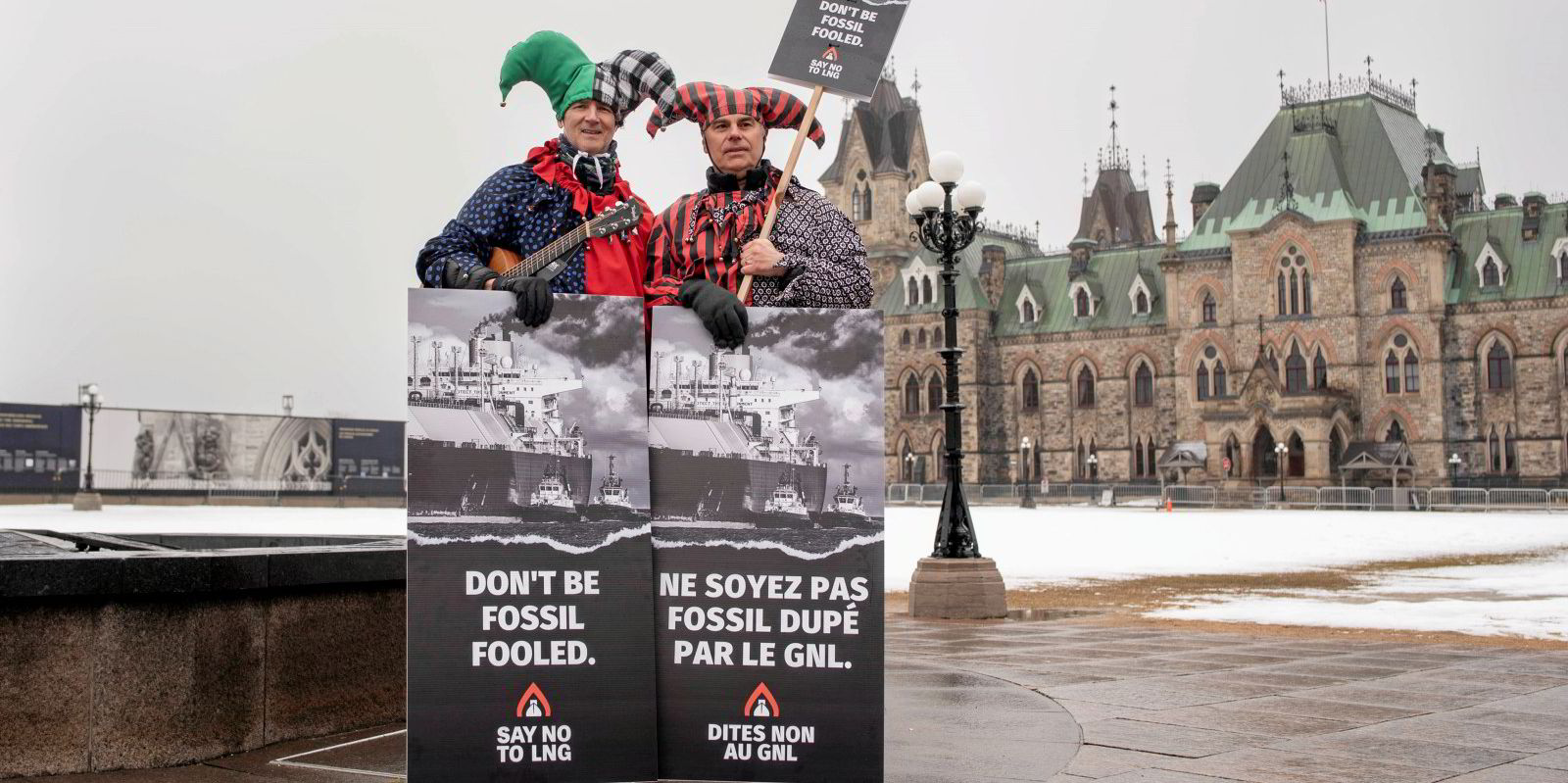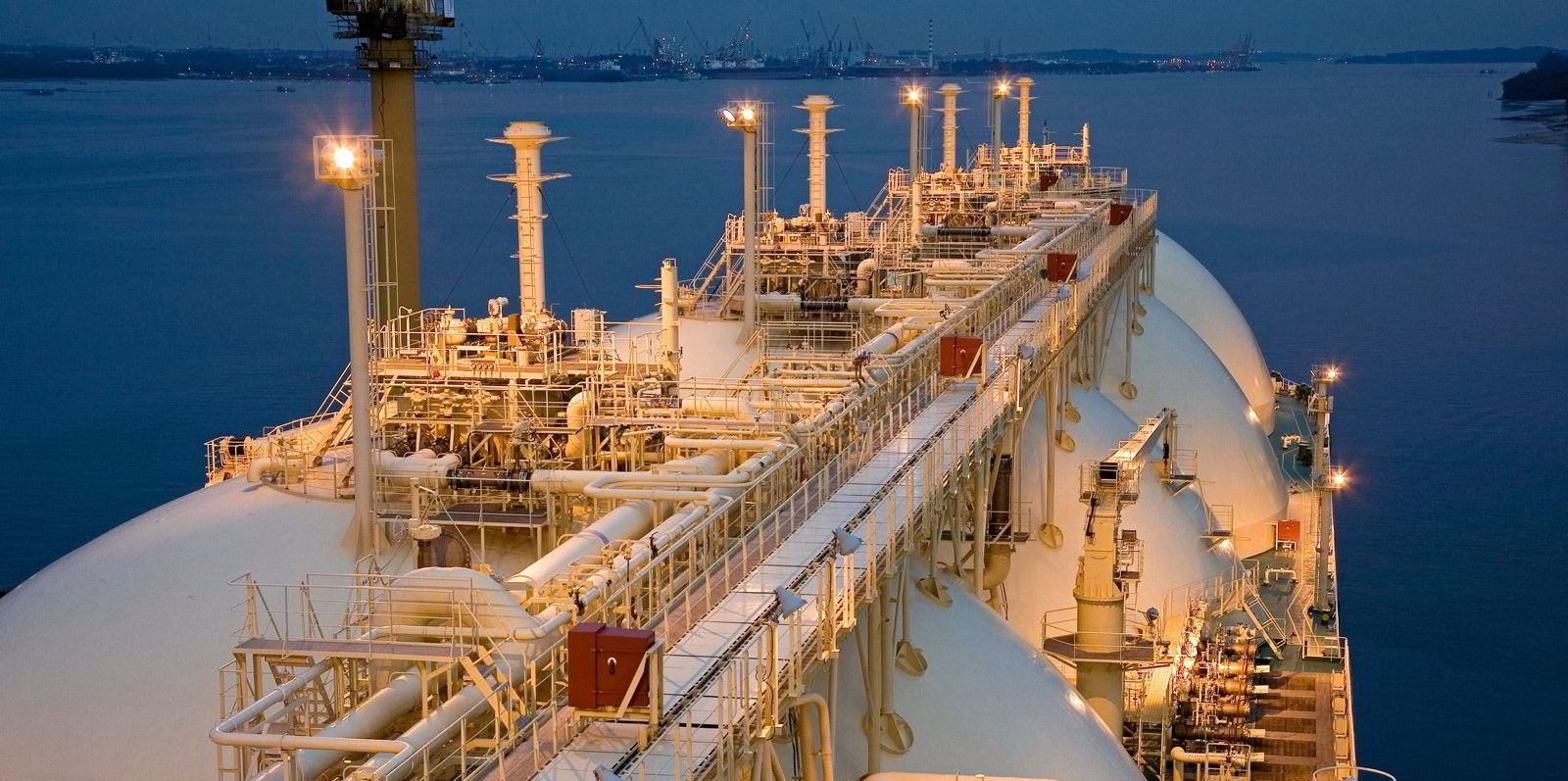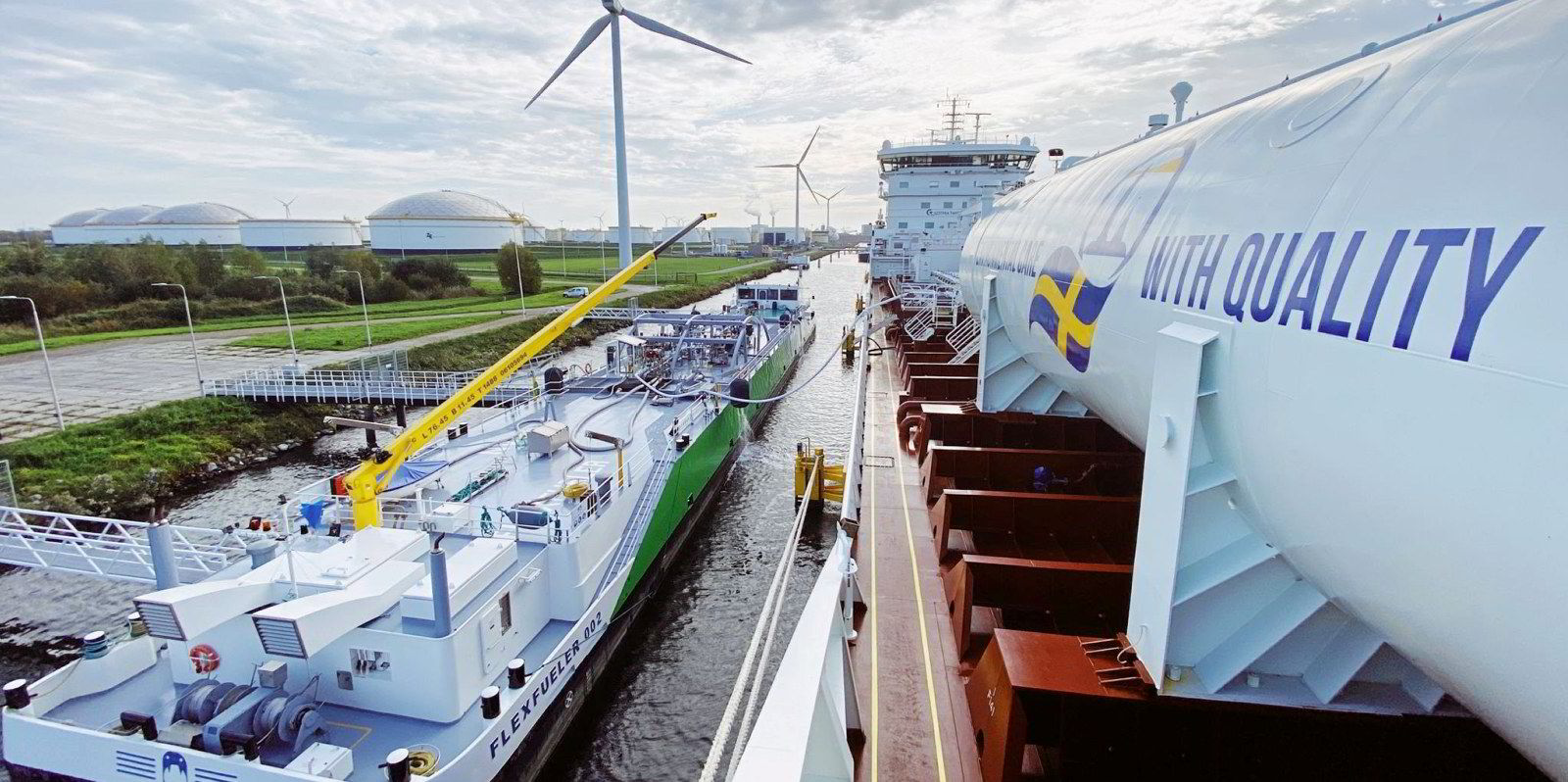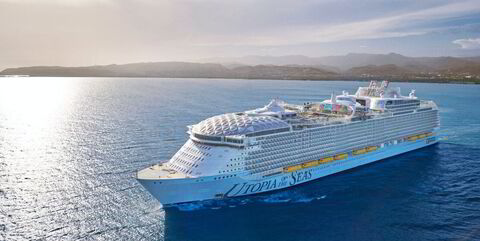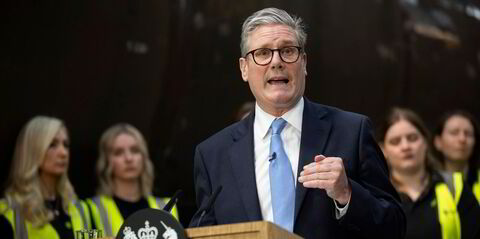A new global campaign called ‘Say No To LNG’ has been launched to draw attention to what it says is the “greenwashing” of the fuel for ships and to draw attention to the fuelling alternative’s methane emissions.
Speaking to TradeWinds, Say No To LNG global campaign director Elissama Menezes said the focus on LNG is being contextualised as a “transition or green fuel” and part of the decarbonisation strategy.
She said this is “an incomplete narrative” in that while LNG may emit less CO2, it emits a more harmful greenhouse gas — methane that will have a more damaging environmental effect in the short term.
The group, which comprises a global network of environmental and climate advocates, highlights the International Maritime Organization’s fourth GHG Study from 2020, which states that with no international regulations, methane emissions from LNG-fuelled ships increased by 150% between 2012 and 2018.
In a statement, the campaign group said: “LNG is a dangerous climate pollutant that poses risks to nature, public safety and health.
“Say No To LNG is imploring the shipping sector and policymakers to urgently rule out LNG from all shipping decarbonisation pathways.”
Instead of shipowners signing up for LNG-fuelled vessels, Menezes said the campaign group wants them to employ operational measures to save fuel and to invest in research and development.
Menezes said short-term solutions and the implementation of operational and technical efficiency measures can save up to 15% of the fuel and have a very significant reduction in greenhouse gas emissions. It can also position the industry to be more efficient for zero-emission fuels.
“We want a prompt implementation of operational and technical efficiency measures, early deployments in zero-emission fuels and technologies, and no public funding for fossil fuel infrastructure,” the campaign said.
The group also argues that investing in LNG is financially risky, citing geopolitical instabilities, price rises, public pressure and international regulations.
Menezes stressed that the group is “not prescriptive” about what fuel the shipping industry should use and acknowledges that there is no one solution that will fit all.
But she stressed that solutions need to be aligned with the Paris Agreement’s legally binding treaty to keep global warming below 1.5C, based on a lifecycle approach, go beyond being solely focused on fossil fuels and be able to be fairly distributed across all users to ensure a level playing field.
The campaign formally launched this week and has more events planned.
Menezes said the group wants to work with the shipping industry to make sure it is not left with stranded assets and instead allows the business to thrive in the context of a zero-emissions future.
The group pointed to a recent study that it said shows the value of stranded assets in LNG-fuelled ships will be up to $850bn in 2030.
She said the campaign sees its role as supporting industry stakeholders to make sound long-term decisions so they do not become trapped by regulations that catch up with solutions that did not bring the outcomes desired for climate and the environment.
